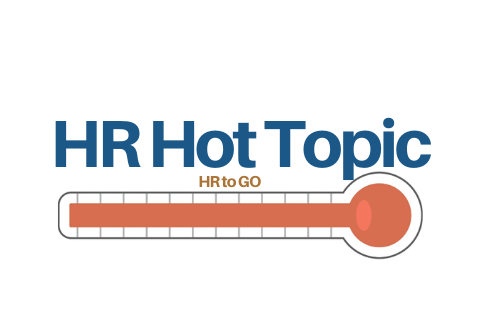HR Hot Topic – DOL Issues Important Changes Regarding the FFCRA

The U.S. Department of Labor has announced revisions to the Families First Coronavirus Response Act (FFCRA) in the wake of a recent court decision.
The revised regulations became effective September 16, 2020
Important for employers to note the following changes and clarifications:
Requiring Documentation for FFCRA Leave
The initial FFCRA regulations required documentation to be provided to the employer before any sick time is taken. The recent court decision vacated this requirement. Therefore, employers may not require the employee to submit documentation prior to the commencement of FFCRA leave. The content and the need for documentation was not eliminated and employers can and should continue to require employees to provide documentation supporting their need for FFCRA as soon as possible.
Work Availability Requirement
FFCRA leave continues to be available only if the employer has work available for the employee to perform and the employee is unable to work due to reasons related to COVID-19. Therefore, if the employer has no work for the employee due to business closure, a furlough, etc., then the employee is not entitled to FFCRA leave even if they would otherwise qualify. Reaffirms and provides additional explanation for the requirement that employees may take FFCRA leave only if work would otherwise be available to them, meaning paid leave is only available if a qualifying reason was the “but for” cause of the employee’s inability to work (not due to closure of a worksite or business or lack of work); Reaffirms and provides additional explanation for the requirement that employees may take FFCRA leave only if work would otherwise be available to them, meaning paid leave is only available if a qualifying reason was the “but for” cause of the employee’s inability to work (not due to closure of a worksite or business or lack of work);
Intermittent Leave
Due to the possibility of spreading COVID-19 in the workplace. It would be contrary to the purpose of the FFCRA to allow someone to take emergency paid sick leave intermittently (unless caring for a child whose regular day care provider is unavailable due to COVID-19). Therefore, for employees who work on-site, the DOL reaffirms its decision to only allow intermittent leave for expanded FMLA leave purposes. However, intermittent leave may be available for any FFCRA qualified reason if an employee is teleworking, as there is no risk the employee would spread COVID-19 at a worksite. The employer approval for any intermittent leave remains in place.
As with any request for FFCRA leave, employers should consult with employment counsel on any request for FFCRA leave before denying such a request to prevent compliance mistakes.
The Health Care Provider Exception
The DOL also limited the “health care provider” exception (which excluded certain employees from FFCRA eligibility) to employees who are “capable of providing health care services,” including “diagnostic services, preventive services, treatment services, or other services that are integrated with and necessary to the provision of patient care.”
Food service professionals, IT professionals, building maintenance workers, HR professionals, or other individuals who do not provide health care services even though their work effects health care services are no longer included in the definition of health care providers.
Under the new definition of “heath care provider” individuals may work in various settings such as but not limited to, hospitals, clinics, doctor’s offices, medical schools, local health departments, nursing or retirement facilities, nursing homes, home health providers, laboratories, or pharmacies.
The limitations now require employers in the health care industry to undertake a position-specific analysis to determine which employees meet the new definition of “health care provider.”
Final Thoughts
Employers can expect further updates between now and the end of the year pertaining to this mandated benefit and the application of the various eligibility scenarios.
